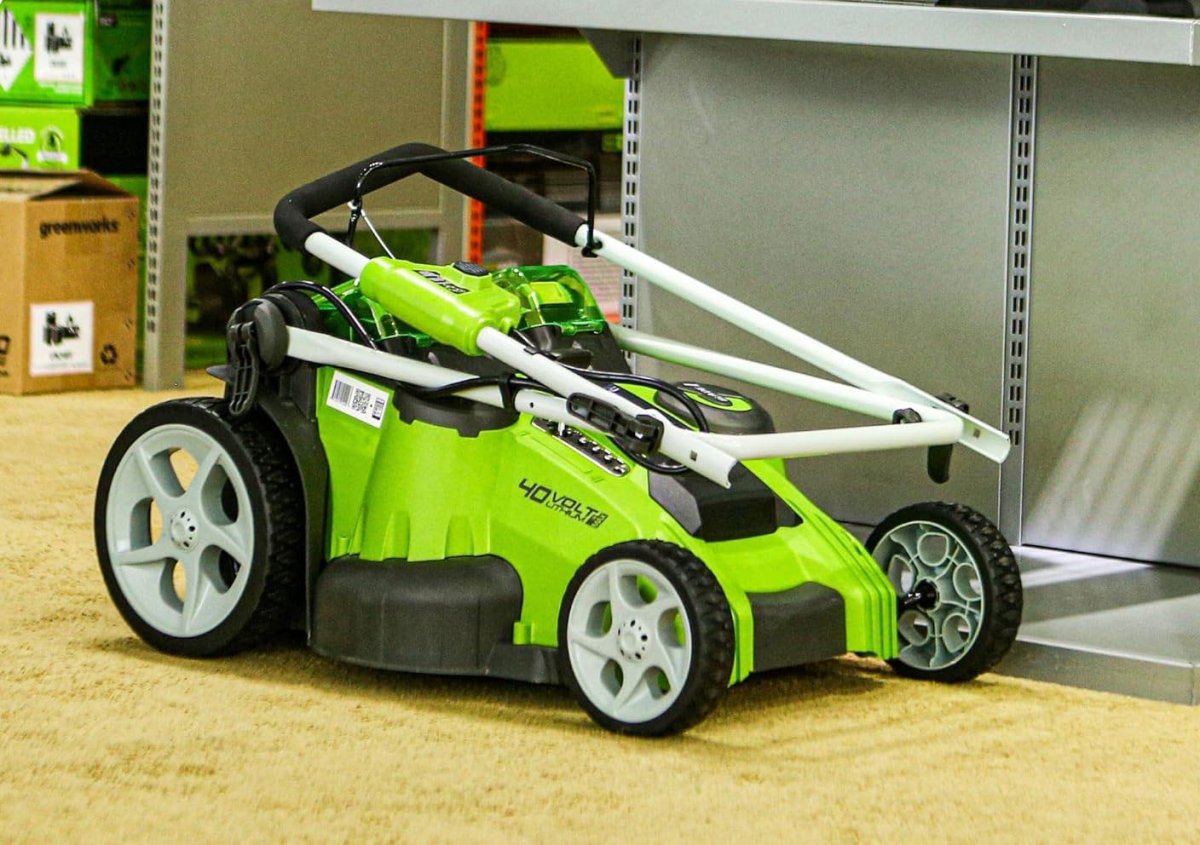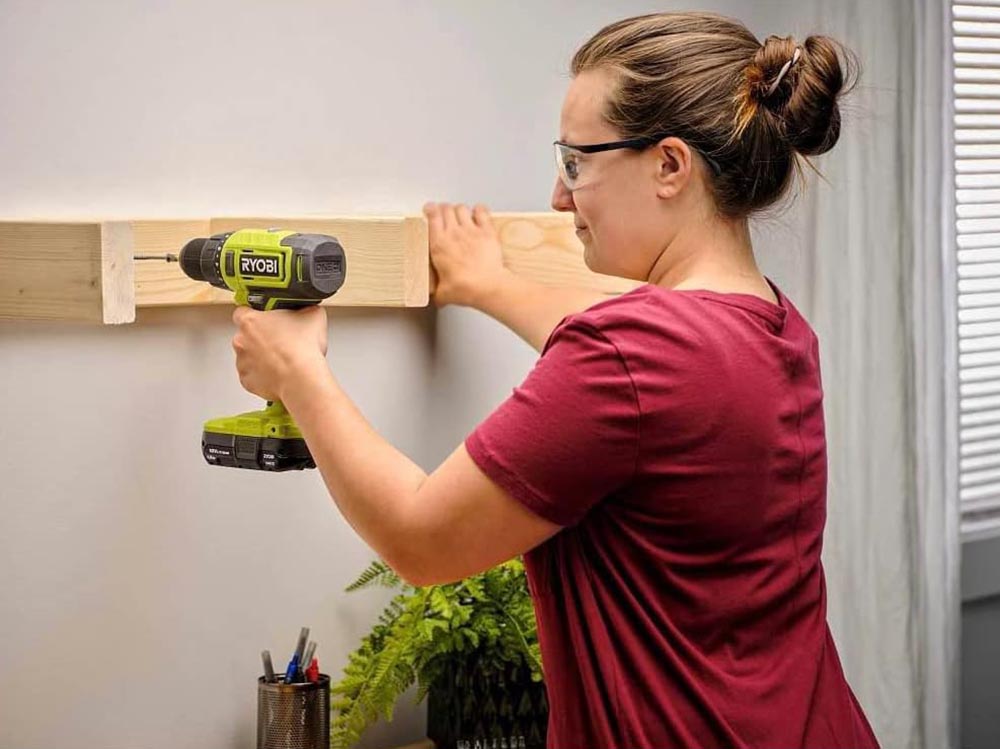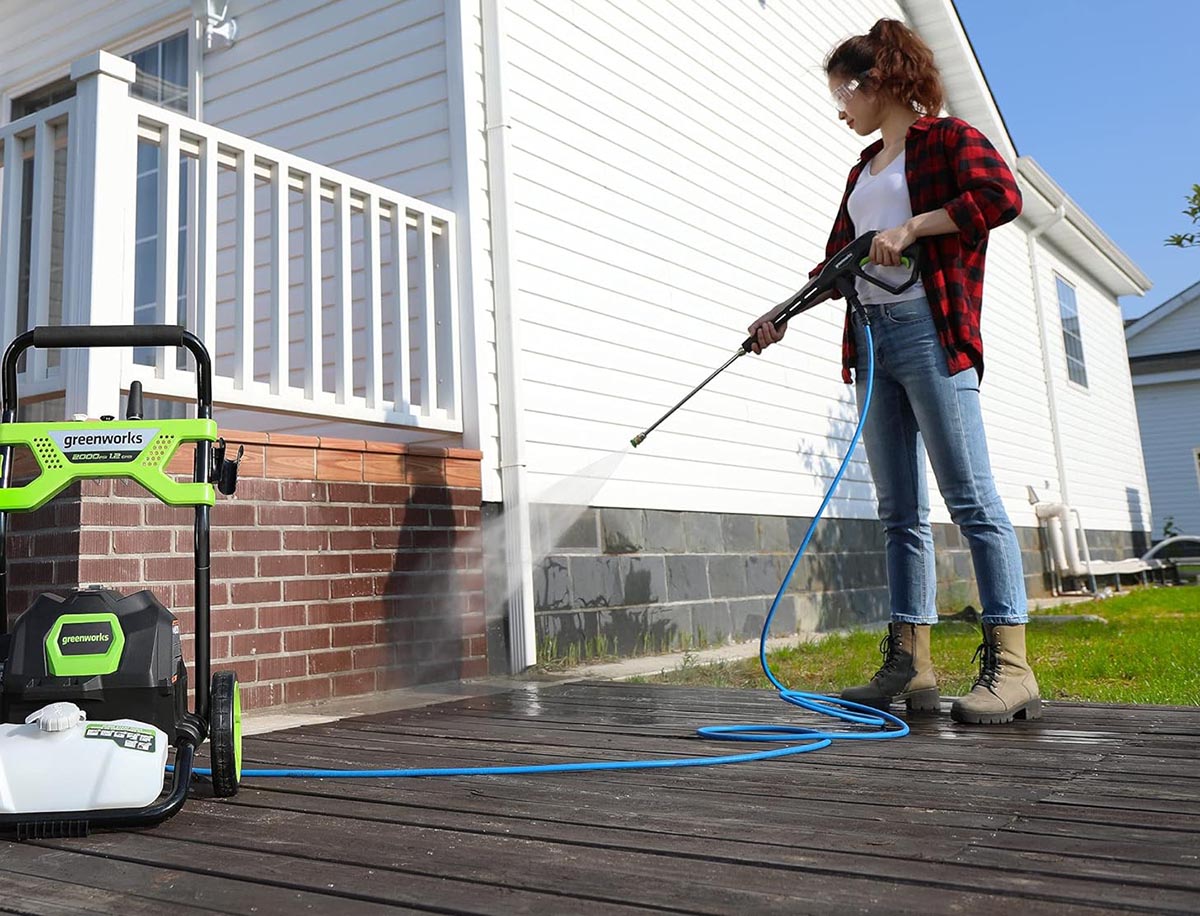We may earn revenue from the products available on this page and participate in affiliate programs. Learn More ›
Greenworks and Ryobi are two of the world’s leading cordless tool brands and are recognized for their innovative designs. Both also produce corded tools that are reliable and affordable. The ranges are extensive, with offerings that include vacuums for the home and garage, DIY essentials like power drills and circular saws, pressure washers for outdoors, and lawn mowers for the yard. Both manufacturers offer products that can be seen as direct rivals, so people inevitably ask, “Which one is best?” Our Greenworks vs. Ryobi challenge sets out to find the answer.
How We Compared Greenworks vs. Ryobi
The Bob Vila team keeps a close eye on power tool brands and their latest developments to offer the best deals to our readers. Regular testing of Greenworks and Ryobi products is part of our routine. I’ve used Ryobi tools in my own DIY and remodeling work. For this article, we looked at similar devices from each brand and ran direct comparisons. For example, we looked at Greenworks vs. Ryobi pressure washer performance and rated Greenworks vs. Ryobi lawn mowers.
Greenworks

Price Range: $ to $$$
Our Top Picks: Greenworks 2,000 PSI Pressure Washer for $199.00, Greenworks 40V 20-Inch Cordless Lawn Mower for $322.99, and Greenworks 60V 42-Inch Zero-Turn Riding Mower for $3,999.99.
Greenworks is a younger power tool brand that’s been around since 2002 and is owned by a Chinese company, Globe Tools. In addition to manufacturing facilities in China and Vietnam, the brand now has a plant in Morristown, Tennessee.
Greenworks makes a wide range of corded models, but cordless tools and battery technology is what the brand is best known for. With more than 2,800 filed patents, Greenworks continues to push the boundaries of what’s possible with cordless equipment. In addition to its popular DIY equipment and yard tools, Greenworks also makes contractor-grade gardening equipment; a range of electric bikes, scooters, and carts; plus whole-home battery systems that can be used instead of generators if there’s a power outage.
Pros
- A focus is on developing cutting-edge cordless technology (although it sells corded tools, too)
- An extensive range of battery-powered tools that includes equipment for professional users
- A reputation for high performance and reliability at affordable prices
Cons
- The extensive use of plastics can make the tools appear fragile.
- A small percentage of buyers thought battery runtimes were short and recharging took too long
Shop Greenworks products at:
Ryobi

Price Range: $ to $$$
Our Top Picks: Ryobi 2000 PSI Pressure Washer for $199.00, Ryobi 40V 20-Inch Cordless Lawn Mower for $229.00, and Ryobi One+ 18V Cordless ½-Inch Drill/Driver Kit for $79
Ryobi is a Japanese tool manufacturer that can call on over 75 years of experience. The brand is owned by Techtronic Industries, which also owns Milwaukee. Ryobi is pitched as the affordable homeowner/DIY brand, whereas Milwaukee tools are aimed at professionals.
In terms of cordless technology, Ryobi predates Greenworks. The One+ range first appeared in 1996, and today it offers over 300 cordless tools. The brand has also developed more powerful 40V and 80V equipment. However, Ryobi isn’t just a power tool brand; it also offers hand tools, measuring and leveling tools, storage solutions, power stations, and gas generators. Because Ryobi has an exclusive deal with The Home Depot, those who prefer to shop elsewhere will find availability can be limited.
Pros
- Over 75 years of experience making all kinds of tools and accessories
- The One+ range offers the convenience of over 300 tools that use the same battery
- Price and performance often compare favorably with popular brands such as Black+Decker, Skil, and Craftsman
Cons
- Not generally considered robust enough for professional users
- Only available through The Home Depot (with limited supplies elsewhere)
Shop Ryobi products at:
Greenworks wins the battle for high performance.
Many Greenworks vs. Ryobi tool comparisons can result in almost identical specifications, and we’ve given examples of this with our top picks. Test Ryobi vs. Greenworks pressure washers and you’ll find the same pounds per square inch (PSI), identical gallons per minute (GPM) flow rate, and even the same price on some models (at the time of publishing). The same thing happens with a lot of the devices from both companies. Head-to-head matchups are common, and this can make choosing the best tool very challenging.
The situation changes when we compare cordless drill drivers. Like many competitors, Ryobi’s tools are 18V. However, Greenworks are all more powerful 24V models. If you need general-purpose DIY tools, Ryobi’s 18V range is particularly strong. If you’re looking for high performance, it’s typically Greenworks that has the solutions. Both brands have similar 40V devices. However, Ryobi has no 60V tools, whereas Greenworks has over 75.
Where Ryobi has a half dozen 80V machines that are certainly impressive, Greenworks customers can choose from more than 75. Greenworks also has 50-plus commercial tools rated at 82V. Ryobi has no current offerings that compete with these.
Ryobi wins in the home and workshop, but Greenworks owns the outdoors.
We’ve already mentioned Ryobi’s strength in the DIY market, and it is undoubtedly one of the best tool brands in this sector. Ryobi offers far greater choices than Greenworks when it comes to drills, impact drivers, saws, and nailers. If you need an affordable tool for the home workshop, Ryobi is tough to beat.
Both companies offer competitive ranges of vacuums. There’s also little to differentiate between the two when comparing blowers, string trimmers, and chainsaws, although there are around twice as many models in the Greenworks range.
However, Greenworks has significantly more options for ride-on mowers. With cutting capacities of up to 54 inches, and speeds that can reach 16 miles per hour, these mowers can get the job done quickly. There’s also the Greenworks cordless commercial range aimed at professional contractors. Ryobi does not compete in this market.
Greenworks uses a lot of plastic—but it isn’t all cheap and flimsy.
Both Ryobi and Greenworks are experienced brands. Although Ryobi has been around much longer than Greenworks, each brand is recognized as a leading developer of cordless technology and has extensive high-tech manufacturing facilities. For this reason, experience isn’t a factor.
Some reviewers point out that Greenworks uses a lot of plastic in the design of its equipment. This is true, but many other manufacturers do as well. It’s easier and cheaper to produce a plastic component than a metal one, and this helps the brand maintain competitive pricing. Modern plastic can be surprisingly strong and durable, and feedback suggests that Greenworks tools are equal to Ryobi in terms of quality.
Our Verdict
If we take a quick look at our Greenworks vs. Ryobi debate, it’s easy to assume that Ryobi rules DIY tools and Greenworks takes the prize for outdoor tools. To some extent, this is true. If you want a drill driver, Ryobi has what you need. If you want a zero-turn lawn mower, you’ll likely choose Greenworks.
In between those two extremes, it’s not so straightforward. Specifications are often almost identical, and so are the prices. One approach to consider is which brand you will buy from more frequently. Greenworks and Ryobi batteries are not cross-compatible, so if you buy several 18V tools, Ryobi is the obvious choice. If you want numerous powerful outdoor equipment, you might be better off investing in Greenworks.


